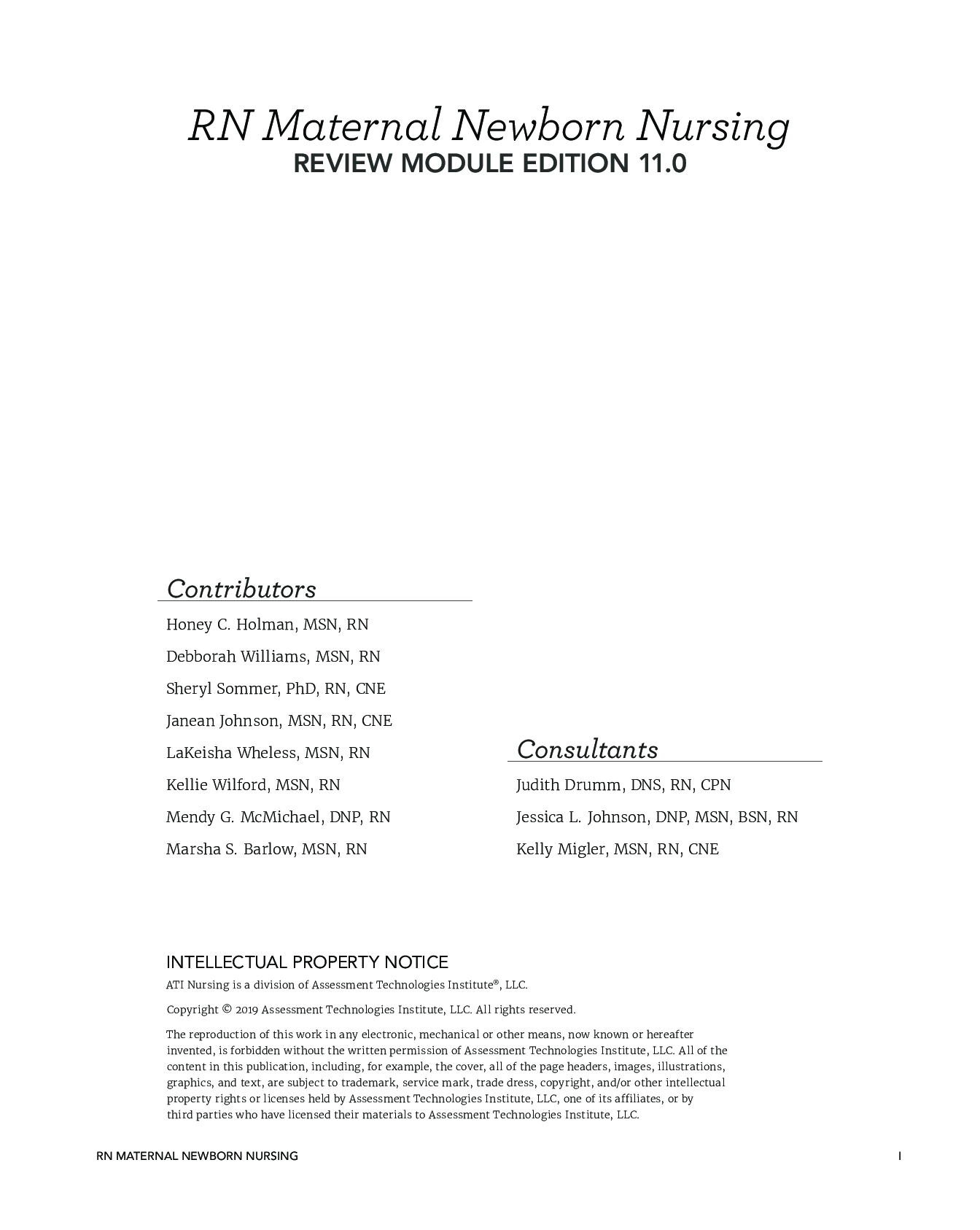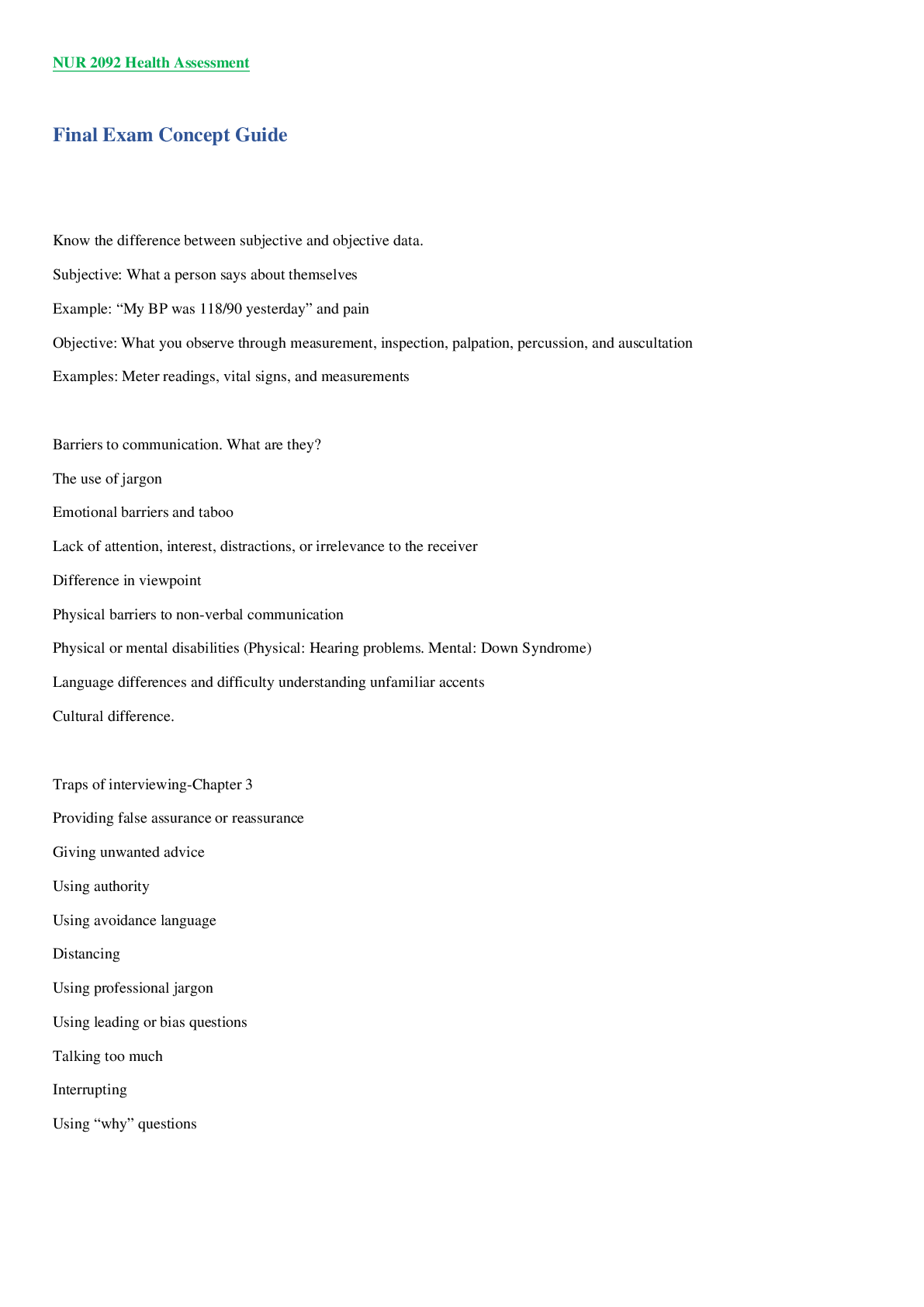Anthropology > STUDY GUIDE > California State University, FullertonANTH 304Study Guide Exam 1 (All)
California State University, FullertonANTH 304Study Guide Exam 1
Document Content and Description Below
Anth 304-70 Exam #1 Study Guide Covers material from Weeks 1-3. The exam will consist of various types of objective questions (multiple choice, true/false, and matching) as well as possible short es ... say questions. In addition to this study guide, you should review all lectures, text chapters, and all key terms. The test may contain any of the key terms, even if they are not listed on this study guide. Be sure you have watched the required films (Nenetsi Samoyeds, and Contact: the Yanomamo) I. Anthropology Terms and Concepts, Key Words (specifically from Lecture Notes, and also as used in the various chapters for this section of the course). Note: You may not be asked specific questions about all of these terms; however, the terms may be imbedded in other questions, and your comprehension of the terms will be assumed. ● Know the definition of anthropology, and what makes it unique when compared with other disciplines that study people ○ Anthropology - The holistic study of people in all their variety: people in the past and the present; our own society as well as remote societies; both large and small groups; both urban and rural areas; in societies with advanced or simple technology; and both the biological and the cultural aspects of the human experience. ○ Scientific and humanistic ● What are anthropology’s 4 fields? ○ Cultural Anthropology - study contemporary peoples and their cultures ○ Archeology - study people of the past ○ Biological/Physical Anthropology - study everything from non-human primates (like Jane Goodall), skeletal remains, genetics, and the evolutionary history of the human species ○ Linguistic Anthropology - language and its cultural importance ● What are the methods of cultural anthropology? ○ participant observation (often called fieldwork because it requires the anthropologist spending an extended period of time at the research location), interviews, and surveys. ● What is culture? What are the general features of human culture? ○ Culture - The behaviors, values, ideas, and material possessions and inventions of a society. Culture is the cornerstone of all anthropological endeavors. Culture surrounds people from the moment they are born: ○ General features of culture: culture is shared, learned, integrated, and symbolic. ○ Culture is central to all four fields of anthropology. All human activities are a part of human culture. Ralph Linton quote. ○ Some believe culture is a system of rules and knowledge that helps people interpret the world around them and generate new behavior. ○ Some anthropologies like to focus on the symbolic nature of culture and the way that groups of people attach their behaviors, philosophies and traditions. ○ Material culture is the manifestation of people’s ideas in the form of their housing, technology, crafts, and so on [Show More]
Last updated: 3 years ago
Preview 1 out of 12 pages

Buy this document to get the full access instantly
Instant Download Access after purchase
Buy NowInstant download
We Accept:

Reviews( 0 )
$9.00
Can't find what you want? Try our AI powered Search
Document information
Connected school, study & course
About the document
Uploaded On
May 18, 2021
Number of pages
12
Written in
All
Additional information
This document has been written for:
Uploaded
May 18, 2021
Downloads
0
Views
136

























